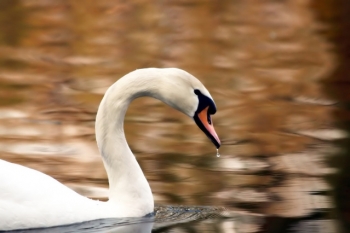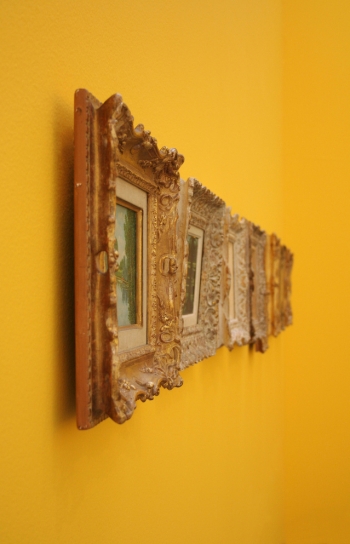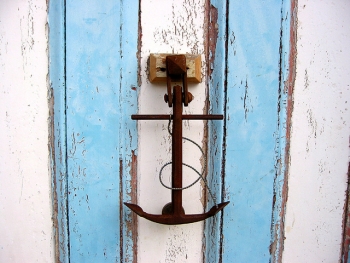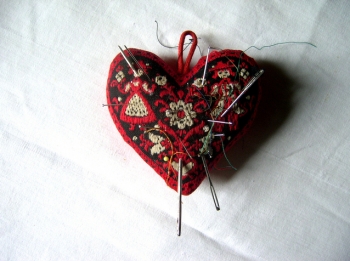
Blog (422)
My hope is to offer encouragement to writers as well as those who simply love to read. You will find eclectic snippets here—news of projects I’m working on, comments regarding books I enjoy, favorite authors, quotes, and reflections regarding my own experiences. I especially like to write about my dreams—those parables in the night seasons. Symbols and metaphors delight and intrigue me. You will find them here.
The moment we indulge our affections, the earth is metamorphosed; there is no winter and no night; all tragedies, all ennuis, vanish--all duties even. ~Ralph Waldo Emerson
I received feedback from another artist about a writing project that left me wallowing in self pity. How could the reader be confused? How could there be no positive feedback? Was the writing really that bad? I recognized my pathetic response right away. I was hungering for acceptance, but instead was told the project needed to be abandoned. Start over. And I'd paid money to get this feedback.
For several weeks I laid on my self-pity mat, flat on my back and gulped in fear and doubt. Paralyzed. I'd responded this way to negative feedback in the past. Yet this blow felt more painful. The reader was someone I highly respect and admire. I thought perhaps I was somehow in his "league"--that I might write almost as well as he did. Yet after the feedback, I sensed I was in a much lower caste than I'd realized. I concluded it would probably be best to abandon the book project as he suggested. Start over, devise a detailed outline of every chapter. Yet even in my disparagement regarding the project, some of the negative response did not ring entirely true for me. Certainly, I was not paying the reader to praise every word of the material, but to come to a conclusion of dismembering the book seemed overly harsh. I continued to wail, moan and cry. "How could I be so misunderstood?"
...that world far off as a little picture hung on the wall...Carrie Brown (from The Stargazer's Sister)
We could hear the banter of people laughing and talking as we pushed open the door of the Italian eatery--that rush of indistinguishable words, at times accentuated with high pitches, then descending into quiet murmuring. The place was candlelit. An aroma of rosemary and basil drifted from the kitchen. We sat at the bar, and I held my elbows close to my side so that I wouldn't touch the woman sitting next to me. Out of the corner of my eye I saw her pale flesh through tiny squares of fishnet hosiery, smelled the iconic scent of Chanel No.5 when she tossed her hair from her shoulder to take a sip of wine. My husband and I sat, heads together, speaking loudly over the roar, clutching tightly to our flutes of Prosecco, feeling people bumping our backs now and then, the line of individuals waiting to be seated curling outside the door. Through the restaurant's front window I could see people outdoors lighting up cigarettes, lifting their faces to breathe out smoke, standing arm-in-arm, stamping their feet to keep warm in the chilly black night. Finally we heard,"Garatti" above the din. I swung my feet around the bar stool, grabbed my husband's hand and followed him to our table for two.
The clatter of plates and the sound of people never diminished as we sat eating our food. My throat ached from yelling. I fell silent, and my gaze drifted to a little painting hung on the wall above our table. In the soft light I couldn't see the image clearly. I stood and moved my eyes only inches from the painting. I saw a rose-colored house with an orange tile roof sittng on a a verdant, Tuscan hillside. The image seemed to speak louder than the cacophony around us in its simplicity. I shouted, "Look Giovanni, this is our house in Italy. One day we'll be there." My husband smiled and said, "One day." Sharing that image together seemed to quell any need for speaking. We finished up our meal with no words, savoring the food, not fighting the indisdinct, undulating swell of speech around us.
Giovanni gave me a manual Olivetti typewriter for Christmas. I'd seen an ad on Craig's list for a manual typewriter and said one day, "You know, I loved my old typewriter. I wrote all my term papers on a manual in college. I never even wanted an electric one. I liked the feel of my fingers pressing down on the keys, the gentle 'ding' at the end of a line of type, the contrast of black words on white paper." My husband is good at picking up on my desires. And he knows me. That's one reason he married me--I'm convinced--my eccentricities. Who else would want a manual typewriter?
This week as Christmas has neared I've waxed nostalgic in other ways. Giovanni and I don't have cable TV. We get a variety of stations that primarily broadcast reruns of old shows. One day this week a whole day was set aside for Andy Williams Christmas specials on one of the channels. I watched several episodes, remembering how excited my parents and I would get to sit down together and watch the programming, color television still new, grateful for good reception and no rabbit ears. Andy singing I'll Be Home For Christmas as fake snow swirled around him. The Osmond brothers dancing and harmonizing, adorable Donny not yet a star.
The Lightness Of Anchors, Leave Me Here
Written by Priscilla K. GarattiHe'd pulled up a chair at my office desk to view the computer screen. The man was at my agency to make sure I was doing my job--there to inspect spreadsheets and documentation--to ensure all my ducks were in a row. I had dressed for the part--a black business suit, the jacket cuffs rolled up to display leopard print accents. I wore Bandolino leather pumps. I had prepared for the site visit, my emotional notes tranquil and relaxed, my mind alert, sharpened. I had braced myself for the inspector's feedback as well--anticipating he would say there was much to improve. My numbers were down on persons I'd tested for HIV and Hepatitis C, and I'd not been able to complete as many education groups as I'd projected for the year. I sensed the inspector would gently exhort me to keep increasing numbers, leaving me with that wearying thought, "You'll never do enough." But after the examiner's perusal of my work, his response astonished me.
The noise started with a consistent clatter--round and round--metal hitting concrete. I thought the sound might be coming from my back tire. I turned up my radio in the car as I drove, in denial. But even the the soothing voice of Fred Child on Performance Today could not block out the persistent clacking.
When I parked the car, I looked at the back tire, and the silver nail head leered at me. I wanted to jerk it out from the tire's hefty tread, but didn't dare, knowing the air would leak from the puncture. I hadn't expected this. I didn't want this. Why did such simple annoyances unravel me, dysregulate me?
I sighed. I could feel my nostrils flaring, angered that I must go to Gerald's tire repair--not because the company didn't provide good service, but because they did. The shop was almost always packed. Located on a corner of a crowded city neighborhood, Gerald's exudes a chaotic friendliness. It's first come, first serve, and patrons often snake around its rust-colred edifice. Gerald's mechanics roll tires over to jacked-up cars and clanging tool sounds echo through the multiple car stalls. I stood in line waiting to spill out my tire problem to the manager at the customer service desk. I overheard the woman in front of me. "I'm not sure what's wrong," she said as she nervously twirled a strand of honey-blond hair. "The tire pressure light is on. Could you take a look?" I thought to myself, "Uh, that would mean you fill the tires with air." I was the Grinch.
My turn came and I blurted, "I've got a nail in my tire. Will it take long to give it a look?"
"I'm sorry, ma'am, it's a long wait. Maybe three or four hours. Could you drop it off?" The manager looked up at me, his eyes the color of winter gray. Kind.
I didn't want to take a chance of further damage to the tire. I would wait. "Thank you ma'am for your patience." No wonder people came to Gerald's. I took one last glance at the man as he handed me my paperwork. His hair looked sculpted in a black wave, like he'd used old-fashioned pomade. With his smooth brow and clean-shaven face, he could have been a 1930's movie star.




